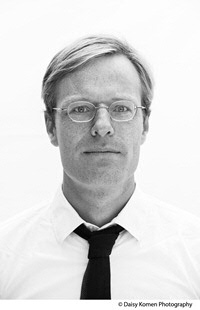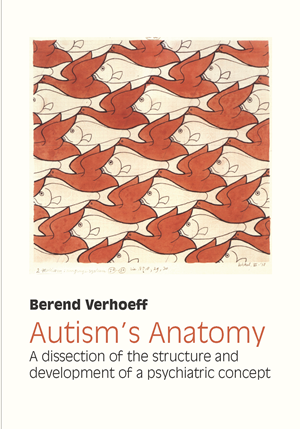Kloof tussen autisme-onderzoek en praktijk wordt steeds groter

De zoektocht naar neurobiologische oorzaken van psychiatrische stoornissen levert nauwelijks iets op. Psychiatrisch onderzoek verzandt in ingewikkelde hypothesen over de neurobiologische basis van syndromen zonder dat te kunnen vertalen naar de psychiatrische praktijk. Zo zijn de opvattingen over autisme sinds de Tweede Wereldoorlog steeds gewijzigd. Dit concludeert psychiater en wetenschapsfilosoof Berend Verhoeff in zijn proefschrift waarop hij 5 november promoveert aan de Rijksuniversiteit Groningen.
De psychiatrie vertoont een hardnekkige neiging om geestesziektes als onafhankelijk bestaande dingen te zien. In plaats daarvan zouden psychiatrische problemen volgens Verhoeff in samenhang moeten worden gezien met de persoonlijke, sociale en culturele context waarin ze ontstaan. Hij deed een historisch-filosofische studie naar al het onderzoek dat sinds de Tweede Wereldoorlog is gedaan naar autisme.
‘Autisme-epidemie’
Autisme is een typisch voorbeeld van een omstreden psychiatrische stoornis. Zo is er onmiskenbaar een ‘autisme-epidemie’ gaande, waarbij er in veertig jaar tijd dertig keer zoveel mensen een autisme-diagnose hebben gekregen. En dat terwijl de psychiatrie er nog steeds van overtuigd is dat deze stoornis een neurobiologische of genetische oorzaak moet hebben. Dat maakt de opvattingen over autisme tot een interessante casus om de psychiatrische wetenschap te onderzoeken, zegt Verhoeff: ‘De ziekte is altijd neergezet als een te ontdekken ‘ding’, iets onveranderlijks waar we steeds meer over te weten komen, terwijl uit het historische onderzoek blijkt dat het autismebegrip aan continue verandering onderhevig is. De psychiatrische wetenschap is telkens niet in staat geweest om de biologische aard van autisme bloot te leggen wat ertoe heeft geleid dat we nu een extreem divers autisme-spectrum hebben.’
Normaal en pathologisch gedrag
Het was Verhoeff er niet om te doen om aan te tonen dat autisme geen neurologische aandoening is, maar om de manier van denken in de psychiatrie bloot te leggen: ‘De psychiatrie gaat uit van het bestaan van aparte ziektes. En er is niks tegen de premisse dat er psychiatrische ziektes bestaan, maar je moet wel een idee hebben over het onderscheid tussen normaal en pathologisch gedrag.’ Hij wijst erop dat er ook andere opvattingen zijn over een psychiatrisch probleem waarbij er rekening wordt gehouden met het individu in zijn of haar specifieke situatie. Verhoeff: ‘Menswetenschappen en sociale wetenschappen kunnen een belangrijke bijdrage leveren aan het verder ontwikkelen van een psychiatrie die zich niet primair richt op de neurobiologie van abstracte ziektes, maar op de beperkingen, kwetsbaarheden en pijnlijke ervaringen van de mens als geheel. Natuurlijk zal een nieuwe denkstijl ook nieuwe problemen en kritische geluiden met zich meebrengen, maar ik vermoed dat psychiatrisch onderzoek dat serieus rekening houdt met de complexe relatie tussen de mens en zijn omgeving meer kans maakt om zich te vertalen naar de klinische praktijk.’
Curriculum Vitae
Berend Verhoeff (Amsterdam, 1977) studeerde Geneeskunde in Maastricht en Wijsbegeerte aan de Universiteit van Amsterdam. Hij voerde zijn promotieonderzoek uit bij de afdeling Geschiedenis en Theorie van de Psychologie van de Faculteit Gedrags- en Maatschappijwetenschappen. Hij promoveert bij Douwe Draaisma en Trudy Dehue op het proefschrift Autism's anatomy. A dissection of the structure and development of a psychiatric concept . Verhoeff werkt momenteel als psychiater in Amsterdam.

Meer nieuws
-
17 februari 2026
Van ghostbuster tot rampenonderzoeker
-
03 februari 2026
‘Daar zit een goeie kop op’
-
20 januari 2026
Alcohol, appen en e-bikes
